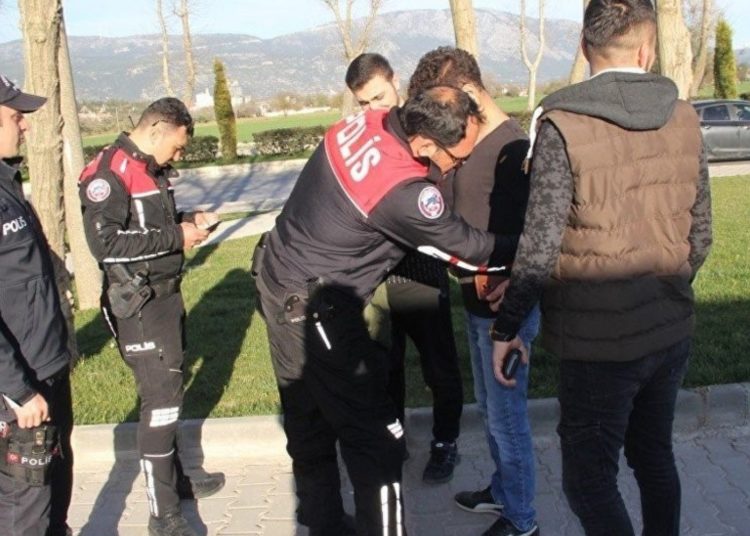Abdullah Bozkurt/Stockholm
A Turkish police intelligence unit obtained information that indicated the existence of a plot to kidnap the Norwegian ambassador in Ankara and Norwegian nationals residing in Turkey during the 2012 trial of a right-wing extremist and terrorist in Oslo.
The intelligence picked up by Turkish authorities prompted a senior police chief in the Turkish capital to order extra vigilance and a review of existing security measures around the ambassador’s residence, embassy building and locations where Norwegian expats often gathered in the city.
Ümit Yurdakul, deputy chief of the Ankara police department, sent his order on April 19, 2012 to district units where the ambassador’s residence and Norwegian Embassy are located and informed the special section that has responsibility for protecting high-value potential targets in the city. He also asked for protection for Norwegian commercial facilities.
The classified order made reference to intelligence passed from the protection department in the Security General Directorate (Emniyet), the main law enforcement agency in Turkey, on April 18. Yurdakul also ordered more effort on gathering intelligence to thwart a possible terrorist attack and asked the units to treat the intelligence as confidential and to share it only on a need-to-know basis.
The warning came just two days after the beginning of the trial of Anders Behring Breivik, a Norwegian terrorist who killed 69 people in a mass shooting spree on the island of Utøy. It is not clear when Turkish intelligence picked up the information about a possible terrorist threat in Ankara.
Secret Turkish police document detailing intelligence about a possible terrorist threat against the Norwegian ambassador in Turkey and Norwegian nationals:
Three years later Yurdakul was put on the spot for sharing the intelligence with the relevant police units in order to beef up security and increase vigilance around the Norwegian Embassy and locations where Norwegians gathered.
The Turkish government launched a criminal procedure on dubious charges and listed the classified document for this specific threat as evidence against him. The government’s move came amid a mass purge of veteran law enforcement officers in the aftermath of corruption probes in 2013 that incriminated then-prime minister and now President Recep Tayyip Erdoğan, his family members and his business and political associates in an Iran sanctions busting scheme.
The corruption investigations revealed how Turkish state banks were used in illegal schemes to bypass US sanctions on Iran in exchange for bribes given to senior government officials including the interior minister. The scheme was approved by Erdoğan himself, who reportedly took the lion’s share of the bribes. Some of the Turkish and Iranian suspects in the graft probe were also named in the confidential probe into an Islamic Revolutionary Guard Corps (IRGC) Quds Force network in Turkey as well.
In the end, many veteran police chiefs were summarily dismissed by the government, and some were later targeted in an abusive criminal investigation on fabricated charges lumped into politically motivated indictments.
In September 2015, Yurdakul and several other police chiefs were detained on charges that they attempted to overthrow the government because of their role in the corruption probes and the Quds Force investigation. Yurdakul was released at arraignment by a judge who cited a lack of evidence to warrant an arrest. However, in a subsequent indictment, the Turkish prosecutor cited, among other so-called evidence, the intelligence communiqué on the terrorist threat against Norwegian targets as evidence of criminal activity on the part of Yurdakul.
Yurdakul was the police chief in Van province in January 2014, when Turkish police launched a nationwide crackdown on al-Qaeda suspects who included Osman Nuri Gülaçar, a senior figure in the provincial branch of the ruling Justice and Development Party (AKP). In the sweep, a Turkish national named İbrahim Şen, a senior al-Qaeda figure, was also put into police custody. Şen was detained in Pakistan on al-Qaeda links and transferred to Guantanamo, where he was kept until 2005, before US officials decided to turn him over to Turkey.
Şen was indicted in 2008 on al-Qaeda charges and convicted. In 2011, when the Syrian crisis started, Turkish intelligence agency MIT recruited him as an operative to mobilize jihadists in Syria. The Erdoğan government halted the crackdown and dismissed Yurdakul from his position as provincial chief in Van. Most suspects who were detained in the sweep were later released.
According to the official figures, nearly 33,000 police officers including many veteran chiefs have been purged from the police force since the December 2013 corruption probes. Vacancies were filled with Islamists and nationalists under the hawkish Interior Minister Süleyman Soylu, at one time sanctioned by the United States for his role in the arrest and detention of a US national.












